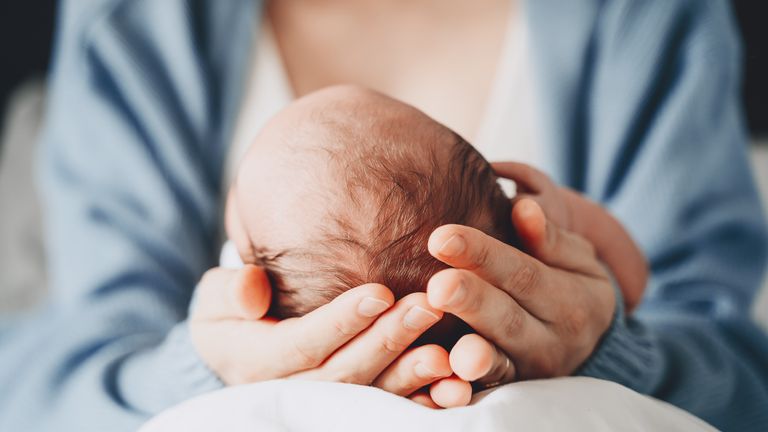
Pregnant women urged to get vaccine that could prevent thousands of baby hospitalisations
A vaccine rollout against a common lung disease could prevent 5,000 babies a year being admitted to hospital, according to public health experts.
Population modelling led by the UK Health Security Agency (UKHSA) suggests that the jab against Respiratory Syncytial Virus (RSV) infection could also avoid 200 infants needing intensive care.
From next month, women past the 28th week of pregnancy will be offered the vaccine to protect their babies from the moment they are born.
RSV infects around 90% of children within the first two years of life. In most cases it causes mild, cold-like symptoms.
But it can lead to severe lung infections, including pneumonia and infant bronchiolitis, and is a leading cause of infant mortality globally.
Illness from the virus is the main cause of winter pressures in children’s hospitals each year, leading to increased demands on paediatric intensive care units and cancelled operations.
It accounts for approximately 20,000 hospital admissions in children under one year and is responsible for 20 to 30 infant deaths in the UK each year.
‘Protection is all you could wish for’
Christine Burlison, whose baby became seriously ill from the virus, is urging pregnant women to take up the new vaccine.
Her daughter, Aria, was 11 days old when she began struggling to breathe and was taken to hospital.
Doctors said she had developed bronchiolitis, a blocking of the airways in the lungs, as a result of RSV.
“Now having the option of a vaccine that could prevent other families having to go through the same experiences as ours did is simply amazing,” Ms Burlison said.
“The most terrible thing that you can face as a parent is seeing your child struggling to breathe.
“Having that protection for a newborn is all you could wish for.”
The study, published in Lancet Regional Health Europe earlier this year assumes 60% of pregnant women will take up the vaccine.
A second spike of cases occurs in the elderly, so people over the age of 75 will also be offered the jab to boost their immunity.
Professor Dame Jenny Harries, chief executive of the UKHSA, said the vaccination programmes would protect lives as well as ease NHS winter pressures.
“The vaccine is a truly positive moment for the public’s health,” she said. “I urge all those eligible, to take up the offer when the programmes begin in September.”
Pregnant women are given the vaccine so their bodies produce antibodies against the virus, which cross the placenta into their baby.
They are then protected from the moment they are born.
